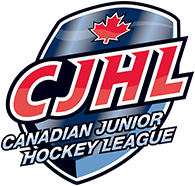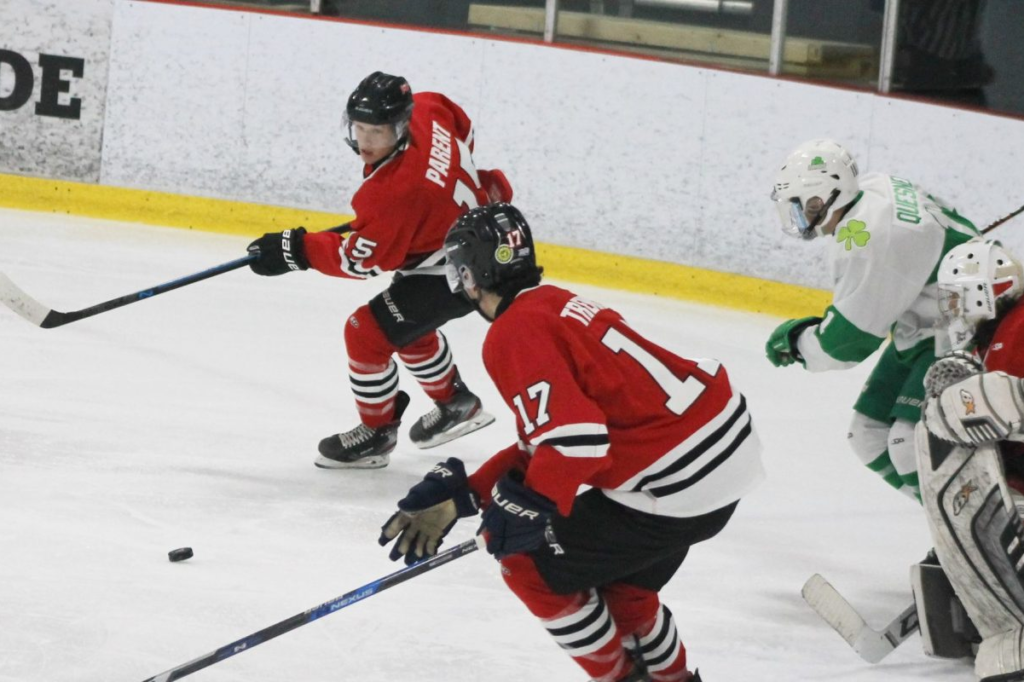By Chems El Adraoui
MONTREAL, Que. — The players of the Quebec Junior AAA Hockey League, all between the age of 17 to 20, can benefit from both sports and academic support throughout their career. Most of them are CEGEP students that live and study close to the arena. It makes it easier for them to practice and combine hockey and studies. Given that CEGEP lasts roughly two years, what happens with players who have to travel to the big cities to study at the university level?
This is the reality of Lukas Chatelain, Karl Ste-Marie, Michael Stegmann and Olivier Tremblay of the Valleyfield Braves.
Studying at the Polytechnique, McGill University or Concordia University, these players have to travel to Valleyfield up to five times a week to attend their practices or games. This represents a lot of travel time and requires a lot of organization on the part of these athletes.
“It took some getting used to it at first. Valleyfield is an hour from Montreal, but we have an apartment in Montreal, so I designed my schedule with the university so that I would have enough time between my classes and practices. The travel is pretty easy because I was able to schedule my classes in a way that helped me a lot,” says Karl.
These players have made sacrifices to combine school and hockey, but all agree that it is worth it, especially since they are playing their last season. “Yes it is a sacrifice, but it is to allow us to play hockey. Being 20 years old, my priority this year is to enjoy my last junior year. This is probably one of the last times that I will be able to live the experience that underlines Lukas.”
In order to balance sports and studies, it is certain that the players must have discipline and a great deal of motivation. Lukas, Karl, Michael and Olivier have learned to take advantage of opportunities and be efficient in their studies at all times: “I’m someone who has never really had a problem learning or being organized, so I’m able to use every spare moment to get ahead with my work and keeping up with my tasks,” says Michael. For their part, Karl and Olivier even use travel to get ahead in their studies: “When we’re on the road, I’m able to study and the guys let me do my work,” explains Karl, “I really try to take all the travel time to practice my oral presentations. Sometimes I would record my lectures to listen to them again in the car, so I could keep studying a little bit,” Olivier adds.
The workload at university is heavy, but they are determined to succeed. They consider themselves lucky to have the help and support of their coaches: “Our coaches are very permissive about our studies. They understand that it’s more important. If I ever need more time to study or to complete a project, they’re comprehensive” says Michael. They are very grateful to their coaches: “The coaches really help us. In college there is a lot of outside work, and they understand when we have to be a little late to practice because we had a team project to finish,” says Karl.
With their junior AAA careers coming to an end, these four players are looking at their options: “I’ve been considering maybe playing for McGill University. If not, I might like to go play in Europe or in a senior league. I’m optimistic for what the future holds for me, and I’m open to all opportunities,” says Michael. The university league (U SPORTS) seems to interest many players: “I’m studying at Concordia and I would really like to play for them, but I don’t know yet where school and hockey will take me. I definitely want to be able to play hockey while I continue my studies. I think the university route would be the best option for me.”










